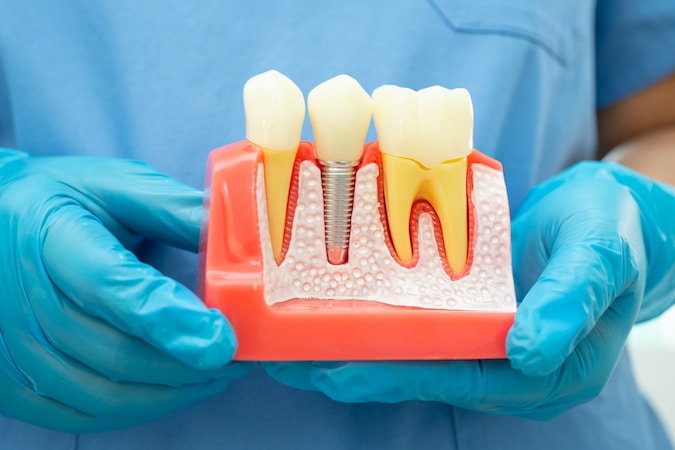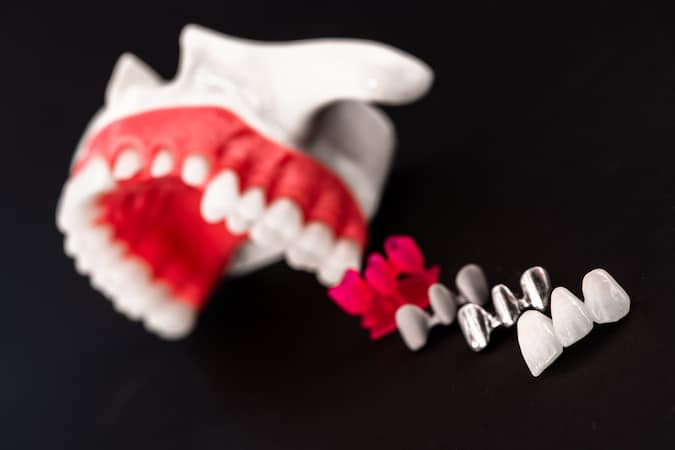
Tooth Replacement Options for a Healthier Smile

Losing a tooth can impact more than just your smile. Learn about various tooth replacement options, including bridges, implants, and dentures, and find the best choice to restore oral health and confidence.
Tooth replacement options help you maintain the structure, function, and appearance of your mouth after tooth loss. Missing teeth can lead to further health problems, but several effective solutions can prevent these issues. In this article, we explore common tooth replacement options—including bridges, implants, and dentures—to help you make an informed choice that fits your needs, budget, and long-term goals. For information on dental insurance that can help cover these procedures, check out SelfGood.
Key Takeaways:
- Tooth loss can affect jaw health, appearance, and overall well-being.
- Options include bridges, implants, and dentures, each with unique benefits.
- The right choice depends on health, budget, and desired longevity.
Why Replacing Missing Teeth is Essential

Losing a tooth might seem harmless, but it can lead to significant long-term issues. Here’s why replacing missing teeth is crucial:
- Health Implications: Missing teeth can lead to bone loss in the jaw. Teeth provide stimulation for the jawbone, and without it, the bone may shrink over time, potentially changing the shape of your face1.
- Alignment and Functionality: Nearby teeth can start to shift, causing bite issues and discomfort. Proper alignment is essential for comfortable chewing, speaking, and daily oral health2.
- Psychological Impact: Studies show that people with missing teeth may feel self-conscious, impacting social and professional interactions. Restoring your smile often brings a renewed sense of confidence3.
Replacing missing teeth isn’t just cosmetic; it’s a necessary step to protect your oral health and overall quality of life.
Common Tooth Replacement Options
There are three main options for tooth replacement: dental bridges, dental implants, and dentures. Here’s an overview of each.
Dental Bridges: A Popular Choice
Dental bridges are a reliable solution for replacing one or more missing teeth. They fill the gap by “bridging” the space between existing teeth, using crowns on each side for support.
Types of Dental Bridges
- Traditional Bridges: The most common type, anchored by crowns on either side of the missing tooth.
- Cantilever Bridges: Attached to only one adjacent tooth; ideal when only one supporting tooth is available.
- Maryland Bonded Bridges: Use metal or porcelain framework attached to the back of adjacent teeth, offering a more conservative approach.
- Implant-Supported Bridges: Instead of relying on natural teeth, this type uses implants for support, providing a durable and stable option.
Pros and Cons of Dental Bridges
- Pros: Faster and more affordable than implants, especially for multiple adjacent missing teeth.
- Cons: Requires altering adjacent teeth, and may need replacement every 10-15 years.
Ideal Candidates for Dental Bridges
Dental bridges are ideal for individuals with healthy adjacent teeth who need to replace a few teeth in a row. They’re particularly suitable when implants aren’t an option due to bone density or budget.
Dental Implants: A Long-Term Solution
Dental implants are a highly effective replacement option that mimics both the look and function of natural teeth. Implants replace both the tooth root and crown, helping maintain bone structure and jaw health.
Types of Dental Implants
- Endosteal Implants: The most common type, placed directly in the jawbone.
- Subperiosteal Implants: Positioned under the gum but above the jawbone, ideal for patients with insufficient bone density.
Dental Implant Process: Step-by-Step
- Consultation and Planning: Your dentist assesses jaw health and suitability for implants.
- Surgery: A titanium post is surgically placed into the jawbone to act as a root.
- Healing Period: During osseointegration, the bone grows around the post for stability (usually 3-6 months).
- Abutment and Crown Placement: Once healed, an abutment connects the crown to the implant, completing the process.
Pros and Cons of Dental Implants
- Pros: Durable, natural look and feel, helps prevent jawbone loss.
- Cons: Higher cost, longer timeline, requires minor surgery.
Ideal Candidates for Dental Implants
Implants are ideal for those with good oral health and sufficient jawbone density. They’re a popular choice for younger patients due to their durability, although they can benefit adults of all ages.
Dentures: Affordable and Versatile
Dentures offer a removable option for individuals missing several or all of their teeth. They’re popular due to their affordability and ease of use.
Types of Dentures
- Full Dentures: Replace all teeth in the upper or lower jaw, fitting over the gums.
- Partial Dentures: Fill gaps when some natural teeth remain.
- Overdentures: Attach to dental implants for extra stability, providing a mix of dentures and implants.
Pros and Cons of Dentures
- Pros: Affordable, removable, suitable for extensive tooth loss.
- Cons: May require adhesive, regular maintenance, and adjustments over time.
Ideal Candidates for Dentures
Dentures are a practical choice for individuals who need a non-invasive and cost-effective solution. They’re especially popular among older adults and those with significant tooth loss.
Comparing Bridges, Implants, and Dentures

Durability and Longevity
- Bridges: Last around 10-15 years with proper care.
- Implants: A permanent solution, can last a lifetime with maintenance.
- Dentures: Generally last 5-10 years, may need adjustments as the jawbone changes.
Cost Comparison
- Bridges: Moderate cost, with some insurance coverage.
- Implants: Higher initial cost, often only partially covered by insurance.
- Dentures: Most affordable, generally covered by insurance.
Aesthetic and Functional Differences
Dental implants and bridges provide the most natural appearance and stability, while dentures can be less secure. Comfort levels vary, with implants and bridges generally providing the most natural feel.
Additional Alternatives to Consider
While bridges, implants, and dentures are the most common choices, there are other options for certain situations.
- Mini Implants: Smaller and more affordable than standard implants.
- Fixed Partial Dentures: Not removable and similar to bridges.
- Temporary Options: Temporary dentures or partials can serve as a placeholder until a permanent solution is ready.
Choosing the Right Replacement Option
Selecting the best tooth replacement option depends on various factors, such as health, budget, and long-term goals. Here’s a quick guide:
- Oral Health and Bone Structure: Implants require a solid jawbone; dentures and bridges may not.
- Budget: Consider upfront costs and potential insurance coverage.
- Long-Term Goals: Implants offer the longest-lasting solution, while dentures and bridges may need replacement.
Final Thoughts
Replacing missing teeth is a crucial step in maintaining oral health and quality of life. Whether you choose bridges, implants, or dentures, each option has unique benefits that cater to different needs. A consultation with your dentist can help you determine the best path forward for a confident, healthy smile.
Frequently Asked Questions
How long does each tooth replacement option last?
- Dental Implants can last a lifetime with proper care. Bridges typically last 10-15 years, and dentures last around 5-10 years with maintenance.
Is one option better for older adults?
- Dentures are often recommended for older adults, as they are affordable and non-invasive. Implants are ideal for those seeking a permanent solution, regardless of age.
Are financing options available for dental implants?
- Yes, many dental offices offer financing plans for implants. Some insurance plans may cover part of the cost, though coverage varies.
Sources:
- American Dental Association. (n.d.). Tooth Replacement Options. ADA.
- National Institute of Dental and Craniofacial Research. (n.d.). Oral Health Impact of Tooth Loss. NIDCR .
- MedlinePlus. (n.d.). Dental Implants Overview. MedlinePlus .




